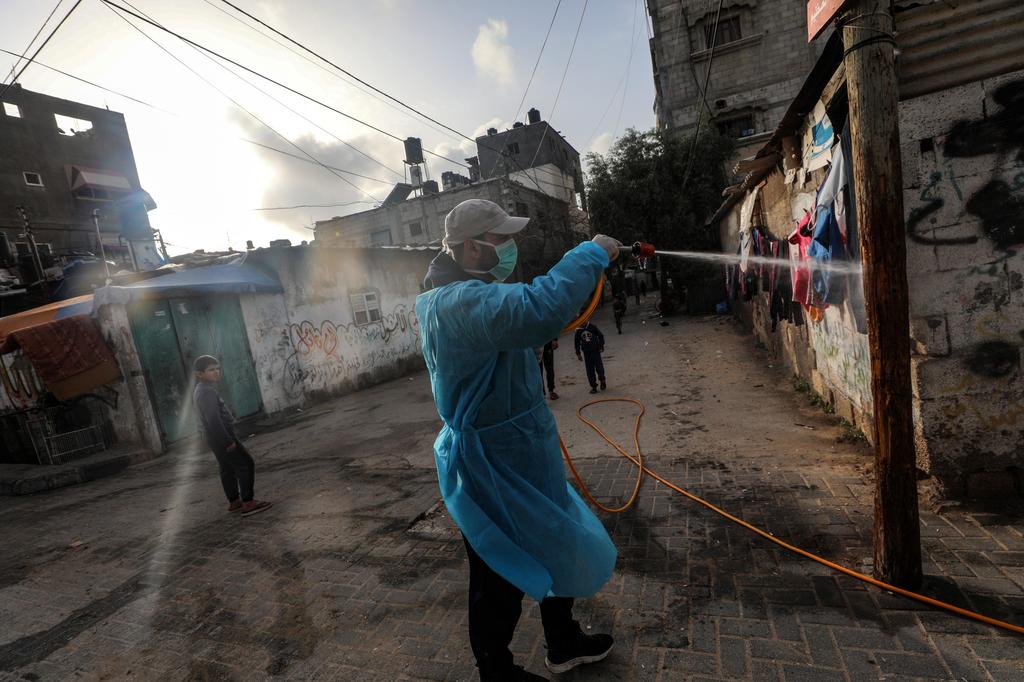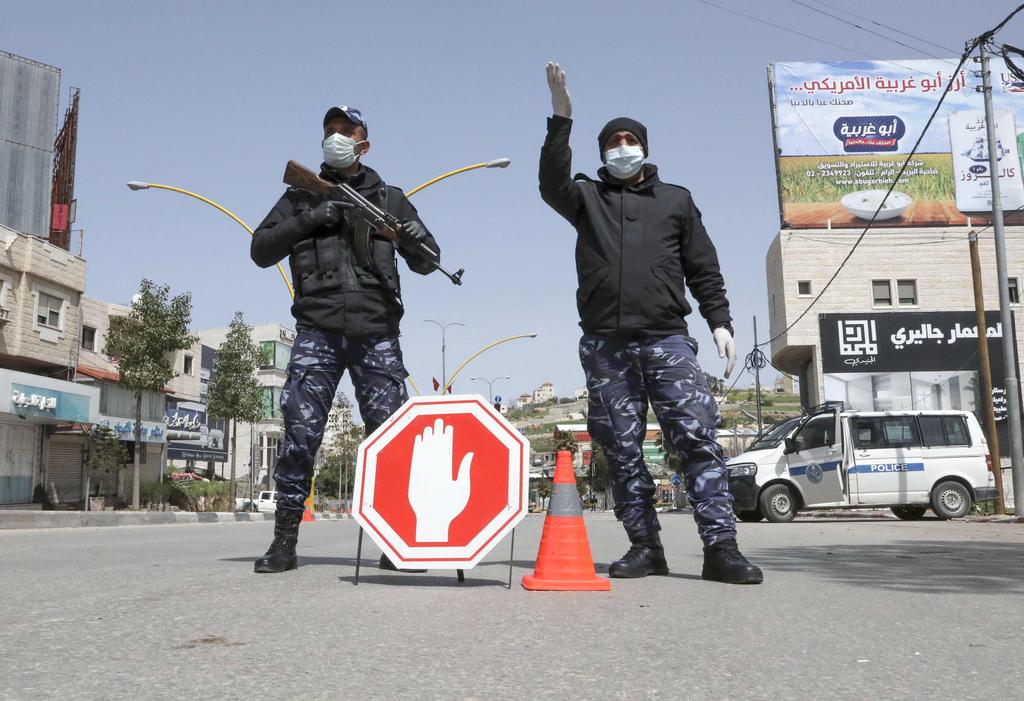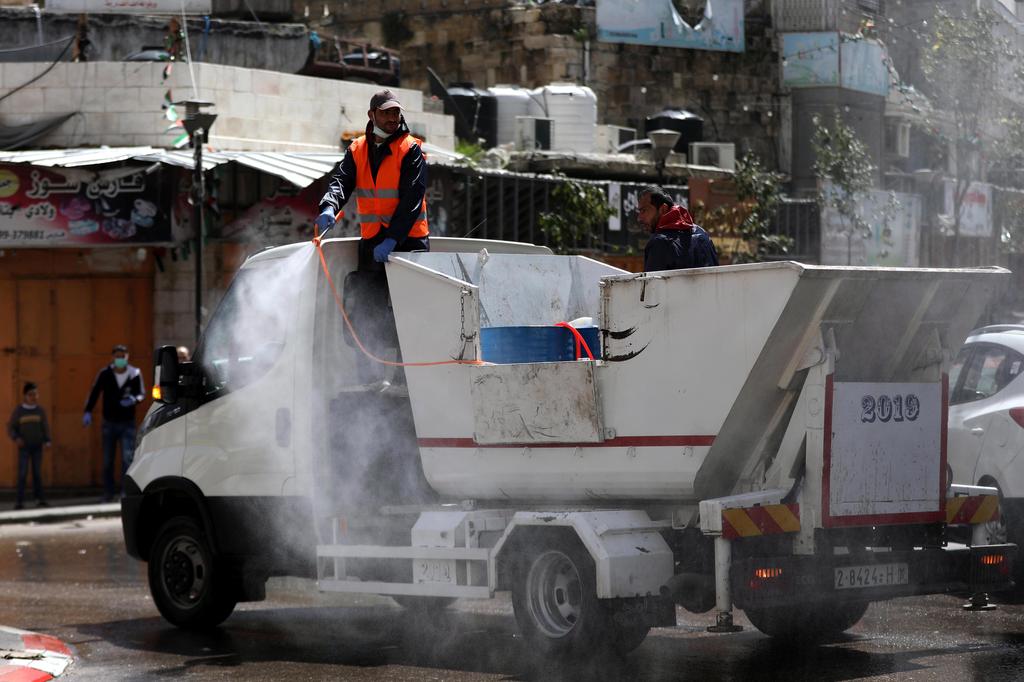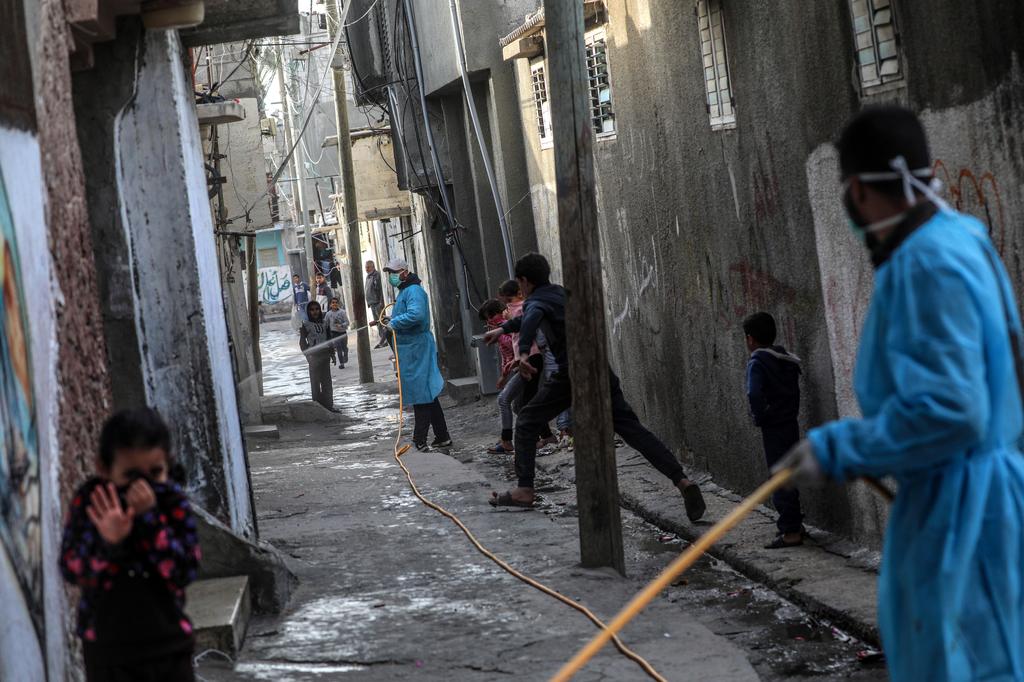Getting your Trinity Audio player ready...
As Western countries reeling from the coronavirus pandemic awaken to a new reality of economic collapse, overwhelmed hospitals, grounded flights and home confinement, it's tempting to think the end of days is at hand.
But for many across the West Bank and Gaza much of this is familiar. The survivors of recent wars, too often dismissed as the pitiable victims of failed states, can offer hard-earned wisdom in times like these.
4 View gallery


Palestinians spray disinfectant as a precaution against the spread of the Covid-19 coronavirus, in the streets of Al Nusairat refugee camp, central Gaza Strip
(Photo: EPA)
Few have more experience with lockdowns and closures than the Palestinians.
During the violent uprising known as the Second Intifada in the early 2000s - which resulted in hundreds of bloody terror attacks carried out by Palestinian militants - Israel shut down parts of the West Bank and Gaza for weeks on end, using checkpoints and curfews to try to quash it.
In 2002, Israel imposed an around-the-clock curfew in Bethlehem for weeks as troops battled Palestinian terrorists holed up in the Church of the Nativity, built on the site revered by Christians as Jesus' birthplace.
4 View gallery


Palestinian security forces man a checkpoint to control movement on a main entrance to the city of Hebron in the West Bank amid efforts to curb the spread of the COVID-19
(Photo: AFP)
Jamal Shihadeh remembers being stuck in his home for 25 days before he slipped out and fled to a nearby Jewish settlement in order to work. He ended up sleeping in the factory until the closures were lifted.
Now he is stuck at home again. Israel and the Palestinian Authority sealed off Bethlehem and severely restricted movement after several residents and tourists tested positive for the coronavirus.
The virus causes only mild symptoms in most patients, who recover in a matter of weeks. But it is highly contagious and can cause severe illness, including pneumonia, particularly in older patients or those with underlying health problems.
"A virus outbreak is much more serious than an Israeli invasion," Shihadeh said. "You can stay away from the soldiers, but I'm not sure you can stay away from a virus."
4 View gallery


Palestinian municipality employees spray disinfectant in the West Bank town of Hebron, 24 March 2020
(Photo: EPA)
Now he and his wife and sons, who have been stuck at home since March 5, live much the same way he did in 2002. They watch the news and Arab soap operas on TV, they play cards and socialize, and they wait for the situation to improve.
"OTHER THINGS WERE NOT IMPORTANT"
The Gaza Strip has been under an Israeli and Egyptian blockade since the Islamic militant group Hamas seized power in 2007. Travel in or out is heavily restricted, and many Palestinians were trapped in their homes for days or weeks at a time during the three wars Hamas has fought with Israel.
During the 2008-2009 war, Mohammed al-Attar awoke one morning to the sound of tanks, aircraft and gunfire. By then, much of his extended family had gathered on the ground floor, with about 80 people sleeping in the living room, kitchen and other areas away from outer walls or windows.
4 View gallery


Palestinians spray disinfectant as a precaution against the spread of the Covid-19 coronavirus, in the streets of Al Nusairat refugee camp, central Gaza Strip
(Photo: EPA)
The family had stocked up on mattresses and basic goods, but after five days they raised white flags and were evacuated to a school that had been turned into a shelter.
"We were just praying for it to stop and that we would stay alive," he said. "Other things were not important."
Gaza has only reported two coronavirus cases, but there are fears that even a small outbreak could overwhelm its health care system. There are only about 60 ventilators in the territory of 2 million, and most of the breathing machines are already in use by patients with other ailments.
Long before the pandemic, Gazans were forced to adapt to daily hardships. Most only have a few hours of electricity a day and the unemployment rate is about 50%. It's almost always been difficult to leave, even for those who can afford it, and now the borders with Israel and Egypt are sealed.

